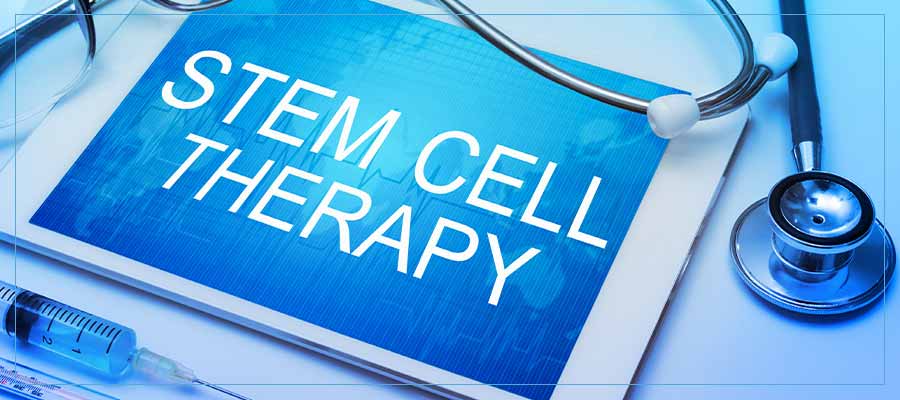Conditions That Benefit from Stem Cell Therapy in New Bern, NC
Stem cell therapy has emerged as a ground-breaking medical treatment with the potential to revolutionize healthcare. This innovative approach utilizes the unique properties of stem cells to regenerate and repair damaged tissues and organs, offering hope for patients suffering from a wide range of diseases and conditions. Visit Aegean Medical today. For more information, contact us today or book an appointment. We are conveniently located at 2111 Neuse Blvd, Suite J, New Bern, NC 28560.




Table of Contents:
What are the benefits of stem cell therapy?
What conditions benefit from stem cell therapy?
Who is a good candidate for stem cell therapy?
Who is not eligible for stem cell therapy?
Stem cell therapy involves the use of stem cells, which are undifferentiated cells with the ability to self-renew and differentiate into specialized cell types. These cells possess unique properties that make them ideal for medical applications. There are different types of stem cells used for therapy, including embryonic stem cells, adult stem cells, and induced pluripotent stem cells. Embryonic stem cells are derived from the embryo and have the potential to develop into any type of cell in the body. Adult stem cells, on the other hand, are found in various tissues and organs throughout the body and can differentiate into specific cell types within their tissue of origin. Lastly, induced pluripotent stem cells are generated by reprogramming adult cells to a pluripotent state, allowing them to differentiate into various cell types. The processes involved in stem cell therapy include the isolation and expansion of stem cells, their differentiation into the desired cell type, and their transplantation into the patient’s body.
One of the key advantages of stem cell therapy is its ability to regenerate and repair damaged tissues and organs. Stem cells have the unique ability to differentiate into specialized cell types, making them invaluable in the treatment of various diseases and conditions. For instance, in Parkinson’s disease, stem cells can be used to replace the damaged dopamine-producing cells in the brain, offering the potential for long-term symptom relief. Similarly, stem cell therapy shows promise in spinal cord injuries, where stem cells can be used to regenerate damaged nerve cells and restore function. Furthermore, stem cell therapy has the potential to treat heart disease by repairing damaged heart tissue and improving cardiac function. By harnessing the regenerative properties of stem cells, this therapy offers a new frontier in medical treatment.
Another significant advantage of stem cell therapy is its potential to reduce reliance on organ transplants and artificial devices. Organ transplants are often limited by the availability of suitable donor organs and the risk of rejection by the recipient’s immune system. Stem cell therapy offers an alternative approach by using the patient’s cells to regenerate and repair damaged tissues and organs. This eliminates the need for immunosuppressants and reduces the risk of rejection. Additionally, stem cell therapy has the potential to replace artificial devices, such as pacemakers or artificial joints, by regenerating damaged tissues and restoring normal function. By providing a more natural and sustainable solution, stem cell therapy offers hope for patients who would otherwise face a lifetime of reliance on external devices.
Stem cell therapy has great potential in the field of regenerative medicine. One of its primary applications lies in repairing damaged tissues and organs. Stem cells have the unique ability to differentiate into specialized cells, such as heart muscle cells, neurons, or liver cells, offering the potential for regeneration. Additionally, stem cell therapy has been explored as a potential treatment for autoimmune diseases, such as multiple sclerosis and rheumatoid arthritis. By modulating the immune response, stem cells can help manage these conditions and potentially provide long-term relief.
Several conditions contribute to the success of stem cell therapy. First and foremost, the availability of suitable stem cell sources is crucial. Embryonic stem cells, adult stem cells, and induced pluripotent stem cells offer different advantages and limitations, and their selection depends on the specific medical condition being treated. Furthermore, the compatibility and matching of donor cells for transplantation play a significant role in the success of the therapy. A proper understanding of the immune response and immune tolerance is also essential. By ensuring that the transplanted stem cells are not rejected by the recipient’s immune system, the chances of successful treatment are greatly enhanced.
Looking toward the future, stem cell therapy holds exciting possibilities. Personalized medicine and tissue engineering are areas that can be revolutionized by stem cell therapy. By tailoring treatments to individual patients, personalized medicine can provide more effective and targeted therapies. Furthermore, stem cells can be utilized in tissue engineering, where they can be manipulated to grow specific tissues or organs for transplantation. However, ethical considerations surrounding the use of embryonic stem cells remain a challenge. The ethical debate regarding the use of embryos raises questions about the moral implications of this therapy. Additionally, safety concerns, such as the risk of tumour formation, must be addressed to ensure the long-term viability and safety of stem cell therapy.
If you suffer from chronic pain, you may be a good candidate for stem cell therapy. However, this isn’t just for people with chronic pain. This therapy can be used in patients with different diseases.
Patients with osteoarthritis are also good candidates for stem cell therapy. This condition is called ruptured articular cartilage, and it can be very painful. Studies have shown that stem cell therapy can reduce pain associated with joint disease in the medium term. Stem cells can even act as natural anti-inflammatory agents.
Even if you are recommended for surgery, you may be a good candidate for stem cell therapy. It’s a viable alternative for people who suffer from pain from a variety of joint problems. In some cases, using stem cell therapy can help avoid surgery and speed recovery.
Often, after a certain age, many will be considered not eligible for stem cell therapy, as transplanting stem cells in a lab to someone older may not be enough, due to the stem cell also being aged, and being unable to support the transplanted cell, which can become a significant issue.
Our team of certified and experienced specialists would be happy to help you through the process and get you booked in for a consultation. For more information about our stem cell therapy services, contact us today. Or, when ready, you can book in to schedule an appointment online at your earliest convenience. We serve patients from New Bern NC, Hymans NC, River Bend NC, Brices Creek NC, Fairfield Harbour NC, and Neuse Forest.

Check Out Our 5 Star Reviews






